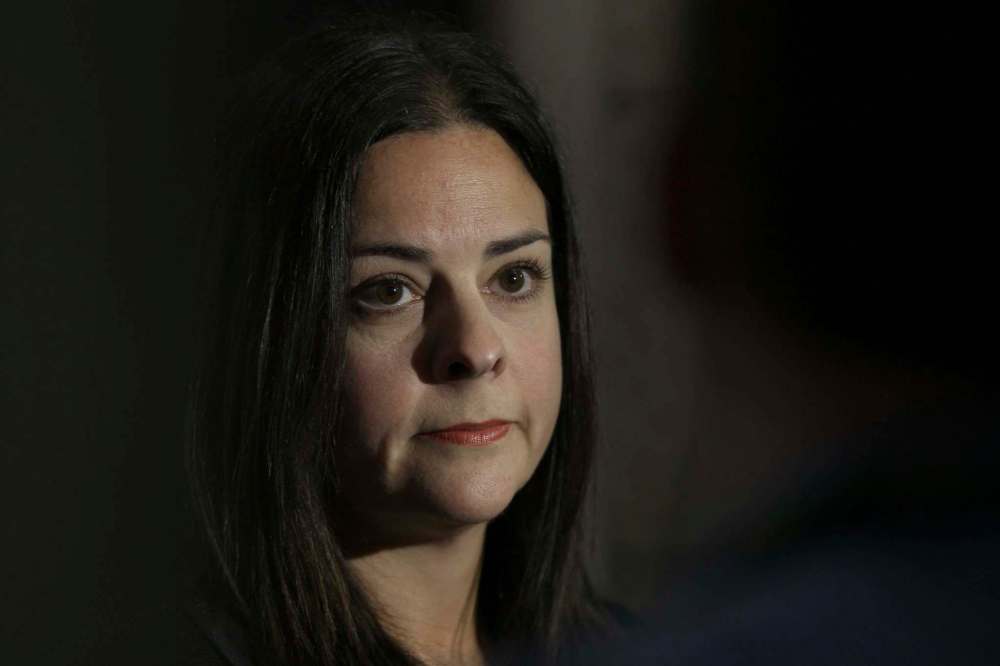Careful approach needed for MMIW
Advertisement
Read this article for free:
or
Already have an account? Log in here »
To continue reading, please subscribe:
Monthly Digital Subscription
$0 for the first 4 weeks*
- Enjoy unlimited reading on winnipegfreepress.com
- Read the E-Edition, our digital replica newspaper
- Access News Break, our award-winning app
- Play interactive puzzles
*No charge for 4 weeks then price increases to the regular rate of $19.95 plus GST every four weeks. Offer available to new and qualified returning subscribers only. Cancel any time.
Monthly Digital Subscription
$4.99/week*
- Enjoy unlimited reading on winnipegfreepress.com
- Read the E-Edition, our digital replica newspaper
- Access News Break, our award-winning app
- Play interactive puzzles
*Billed as $19.95 plus GST every four weeks. Cancel any time.
To continue reading, please subscribe:
Add Free Press access to your Brandon Sun subscription for only an additional
$1 for the first 4 weeks*
*Your next subscription payment will increase by $1.00 and you will be charged $16.99 plus GST for four weeks. After four weeks, your payment will increase to $23.99 plus GST every four weeks.
Read unlimited articles for free today:
or
Already have an account? Log in here »
Hey there, time traveller!
This article was published 30/06/2016 (3473 days ago), so information in it may no longer be current.
The devil’s in the details and right now, that’s what the province is waiting for before committing to an inquiry into missing and murdered aboriginal women and girls.
Manitoba’s not alone. Other provinces are also looking for details, and quite rightly so — particularly since there are many jurisdictional questions.
The Trudeau government moved quickly on its election promise to launch an inquiry into thousands of cases of the missing, a “reset” of Ottawa’s relationship with indigenous people. In January it announced it would hold an inquiry in two phases to look at the issue. The first phase is over and the federal government now says the national inquiry should have the authority to make recommendations within provincial and territorial jurisdictions to tackle the root causes of the issue of missing and murdered women and girls. However, the subnational governments must sign off on that encroachment, and the federal government did not provide much time or many details to the provincial governments. The second phase of the inquiry — the actual inquiry itself — is supposed to begin at the end of June.

The provinces and territories have questions, including Alberta’s NDP government, which supports the idea of an inquiry but thinks the terms of reference are too vague. For Manitoba, Justice Minister Heather Stefanson says a lot of work has already been done in some of the areas under consideration, such as child welfare. The Phoenix Sinclair inquiry resulted in a two-volume report that examined the failure of the child-welfare system in terms of devolution. As Ms. Stefanson suggests, there’s no need to reinvent the wheel on this issue when research already exists.
Bottom line is, who’s going to pay for this? It’s not an unfair question to ask, given the federal government has been criticized for shirking its fiduciary responsibilities toward First Nations, not only in Manitoba but across Canada. Provincial-federal jurisdictional battles over who pays for what service have often resulted in discriminatory practices, making it difficult for indigenous people to access health care, housing or other social programs.
However, since a large part of this inquiry is likely going to look at police practices when engaging with indigenous families, the province should step up to participate in this portion of the study. While the RCMP, which is responsible for policing on reserves and in the province’s rural areas, is federally mandated, police services such as Winnipeg police are controlled by the province. As justice minister, Ms. Stefanson should want to ensure that all is being done to help the close to 20 per cent of Manitoba’s indigenous population that resides in this city.
The Winnipeg Police Service has already faced some criticism — most recently for the way it handled 15-year-old Tina Fontaine’s case. Ms. Fontaine’s body was found dumped in the Red River in August 2014. An internal police investigation found the police had been in contact with her before her death, but they let her go, despite the fact she had been reported missing. No criminal charges against the constables were ever laid.
An audit of police practices in Winnipeg and other cities may provide statistics regarding the speed and quality of responses family and friends receive when reporting their loved ones missing. This would go a long way to help the healing for many families searching for answers, and may provide clear steps for the future — a promising start.
But so far this has largely been a top-down process, with the federal government steering the process and expecting the provinces to follow its lead. That’s hardly fair. Good for Ms. Stefanson for demanding more answers before fully committing further.


